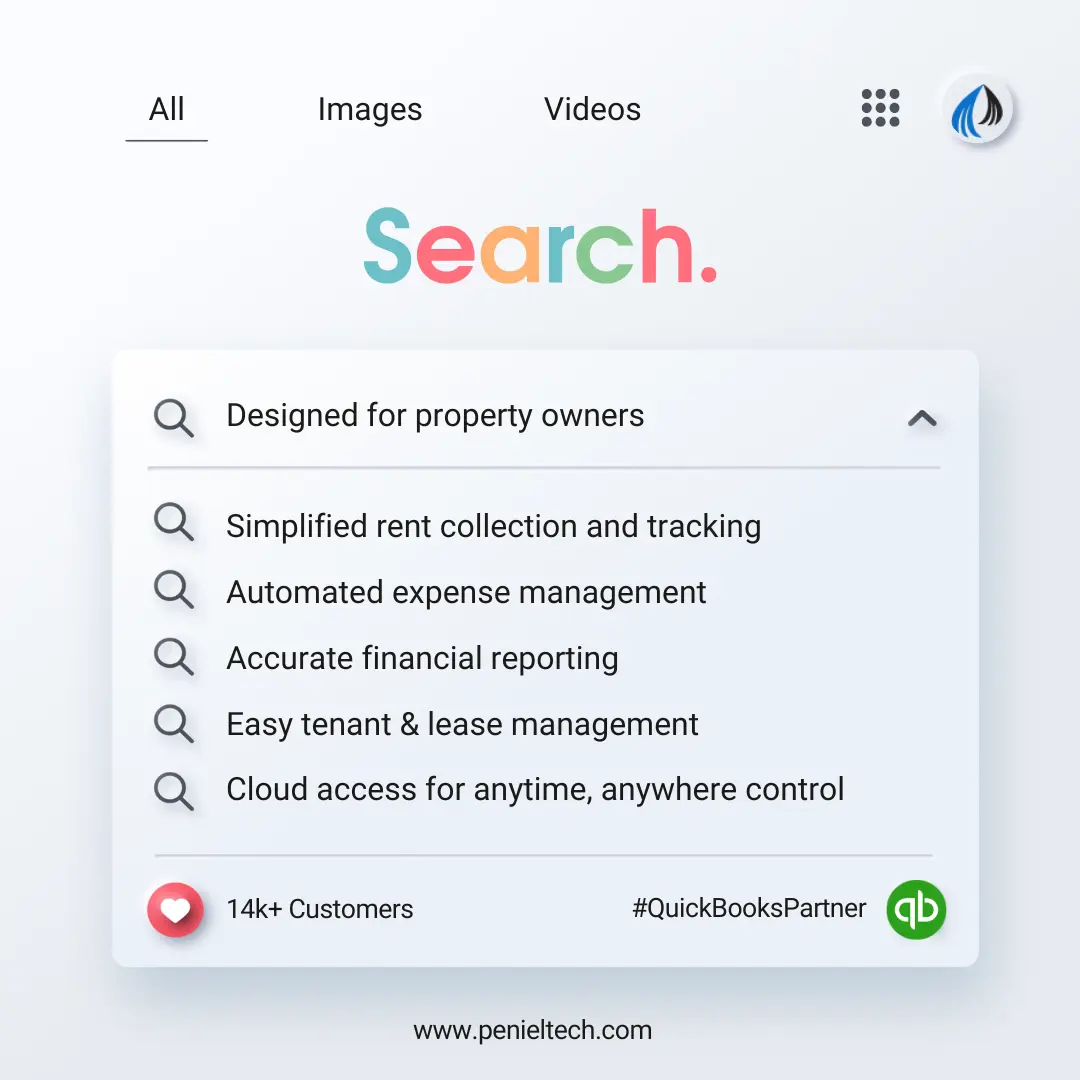QuickBooks Software for Landlords
IN 2025, being a landlord in the UAE isn’t exactly passive income anymore. Rents are going up across Dubai and Abu Dhabi, while new regulations around tenancy contracts keep getting added, and tenants are expecting faster responses regarding invoices and receipts. Add in the fact that the UAE property market has witnessed a surprising rise in the first quarter of 2025. The rental market is also forecasted to grow by almost 8-10% this year.

Collecting rent, paying service charges, and tracking expenses all sound simple on paper, but any landlord managing more than a handful of units knows it quickly turns into a juggling act.
That’s why they are slowly shifting toward accounting automation. And QuickBooks Software, though originally designed for small businesses, has become a solution many property owners are starting to lean on.
What is QuickBooks Software
Invented in 1992, QuickBooks software is plain and simple. Most of you already know it as one of the most widely used accounting solutions globally. At its core, QuickBooks Accounting Software is designed to track income and expenses, generate invoices, reconcile bank accounts, and manage payroll.
Over time, the latest cloud versions made it possible for landlords and property managers to access their data from anywhere, without being tied to a desktop in the back office.
With modules for payments, invoicing, reporting, and even inventory, QuickBooks has turned into a platform that fits multiple industries.
The Problems UAE Landlords Face
Honestly, being a landlord is extremely profitable, but not hassle-free at all.
- Delayed Rent Collection: Late payment is too common in the UAE rental sector. Here, landlords often struggle with cheques bouncing, late payment, or mixed bank transfers.
Simplify Property Accounting
Easily track rent, expenses, and profits with QuickBooks Software for Landlords.
- Service Charges and Maintenance: No matter if it’s Dubai or Abu Dhabi, or somewhere else, owners are generally responsible for paying building management, contractors, and cleaning services. Overall, this is messy to track all these without a proper system in place.
- Multi-Currency Payments: Especially for expat tenants paying in different currencies, landlords need to deal in AED, INR, USD, and more.
- Compliance Pressure: Compliance isn’t negotiable here. From VAT on commercial properties to RERA’s (Real Estate Regulatory Agency) EJARI registration, all needs to be recorded properly.
Let’s be honest, plenty of landlords still rely on manual ledgers. But with stricter laws, tax audits, and rising tenant expectations, that way of working just doesn’t cut it in 2025.
QuickBooks features and benefits for landlords
QuickBooks isn’t marketed particularly as “property management software,” but its accounting and automation features line up surprisingly well with what landlords need.
Rent invoicing and reminders: You are now able to set up tenants as recurring invoices, so payments are tracked automatically. So instead of drafting a rent demand every month, you set it once, and it auto-generates every time.
Expense tracking: It creates categories for repairs, service charges, or utilities, showing exactly what each property is costing you.
Multi-currency support: As mentioned, multi-currency seems to be the biggest issue in handling property management in the UAE. QuickBooks Online makes handling AED/USD simple, with built-in exchange rates.
VAT compliance: QuickBooks in the UAE is specifically designed to handle VAT by allowing users to record all transactions properly and stay FTA-ready always.
Capture Receipts:QuickBooks cloud ensures property owners can seamlessly handle receipts from anywhere using their phone.
Reports and insights: Want to see which properties are profitable, or how much you’re spending on maintenance across all units? QuickBooks generates it with a few clicks.
QuickBooks Pricing in the UAE
QuickBooks Online typically has multiple tiers, depending on how many users and features you need.
- Simple start
- Essentials
- Plus
- Advanced
In the UAE, prices range roughly from AED 6 to AED 27 per month per license (Offer). QuickBooks Cloud hosting can add a bit more since you’re paying for remote access and security, but it gives you anywhere, anytime availability.
For most landlords, even with multiple units, the mid-tier Essentials or Plus plans work fine. Larger property groups may lean towards Advanced. And if migration or setup feels overwhelming, QuickBooks Support through a reliable software partner usually includes package deals where they handle onboarding, training, and sometimes discounts on licenses.
The key thing is you don’t need to spend thousands upfront like the older property management systems.
At the end of the day, QuickBooks Software lets landlords step up without needing a whole accounting department. QuickBooks Software with cloud access basically turns your phone into a mini back office.
And with Penieltech offering QuickBooks Support locally, landlords in the UAE don’t have to struggle with setup or technical glitches alone.
Manage Anywhere, Anytime
Access your rental property finances securely from any device, anytime.
So the role of landlords is evolving. Less “collect rent once a year” and more “manage property like a business.” QuickBooks Online is simply the tool that makes that manageable.
